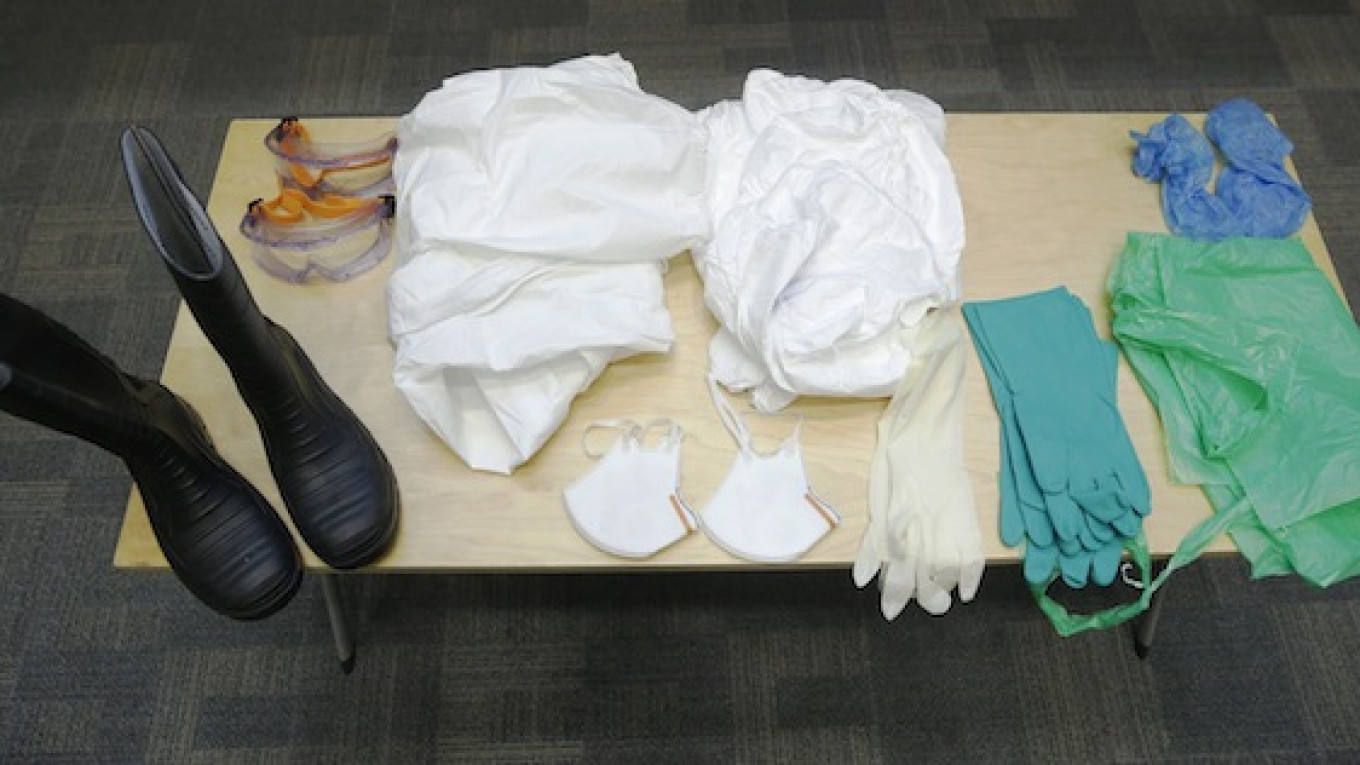A day after two West African students were hospitalized over fears of Ebola, Russia's Foreign Ministry said it had allocated almost $19 million to help fight the virus, which has claimed the lives of more than 4,000 people since December.
That figure is significantly lower than the $1 billion in federal funds the U.S. is planning to spend to help contain the highly contagious Ebola virus in West Africa — including funding for 4,000 military personnel to the region, medical research and other measures to stop the disease from spreading.
Of the Russian budget, 214 million rubles ($5.2 million) will go to humanitarian aid projects to West Africa — the area most affected by the outbreak of the virus, the ministry said in an online statement on Friday.
A further 162 million rubles ($3.95 million) has been put aside for research into the diagnosis, prevention and treatment of the virus, while 155 million rubles ($3.8 million) has been spent helping the country prepare for a national outbreak of Ebola, the statement added.
A total of 248.7 million rubles ($6 million) has been put toward strengthening international efforts to battle the virus, including those led by the World Health Organization, the ministry said.
As of mid-September, Britain had donated about $40 million in aid to battling Ebola, China had donated about $37 million and Germany had committed about $3 million, the Washington Post newspaper reported.
Last week, Russia's health watchdog Rospotrebnadzor announced that 16 cases of suspected Ebola had been recorded in Russia, though all the incidences proved out to be false alarm.
On Thursday, two students from the West African country of Guinea-Bissau were admitted to hospital in Russia's Oryol region — fanning fears of Ebola — though chief sanitary doctor Anna Popov later told Interfax news agency they did not show serious signs of infection and their admission had been part of regular procedure.
A Message from The Moscow Times:
Dear readers,
We are facing unprecedented challenges. Russia's Prosecutor General's Office has designated The Moscow Times as an "undesirable" organization, criminalizing our work and putting our staff at risk of prosecution. This follows our earlier unjust labeling as a "foreign agent."
These actions are direct attempts to silence independent journalism in Russia. The authorities claim our work "discredits the decisions of the Russian leadership." We see things differently: we strive to provide accurate, unbiased reporting on Russia.
We, the journalists of The Moscow Times, refuse to be silenced. But to continue our work, we need your help.
Your support, no matter how small, makes a world of difference. If you can, please support us monthly starting from just $2. It's quick to set up, and every contribution makes a significant impact.
By supporting The Moscow Times, you're defending open, independent journalism in the face of repression. Thank you for standing with us.
Remind me later.


